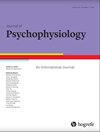P300听觉反应研究中外周听觉功能的记录
IF 0.9
4区 心理学
Q4 NEUROSCIENCES
引用次数: 1
摘要
摘要我们进行了一项重要的综述,以检查患有神经和心理疾病的参与者的外周听力状况是否在已发表的P300听觉反应的临床研究中有记录。文献检索使用三个数据库:PubMed、PsycINFO和Scopus。研究对象包括患有七种神经或心理疾病的参与者。在每个数据库的单独搜索中,每种疾病都与主要搜索短语相关联。在符合纳入标准的102篇论文中,大多数(64%)没有描述参与者的外周听力敏感性。在本综述中,研究纳入了有听力损害风险的参与者,特别是与年龄相关的听力损失,只有一篇出版物充分描述了正式的听力评估。在P300反应的研究中,外周听力状态很少被定义。纳入有听力损失的参与者可能会影响这些研究结果的有效性。我们建议在参与P300听觉反应研究之前进行正式的听力评估。本研究的发现可能会增加听力学领域以外的研究人员对周围性听力损失对听觉P300的影响的认识。本文章由计算机程序翻译,如有差异,请以英文原文为准。
Documentation of Peripheral Auditory Function in Studies of the Auditory P300 Response
Abstract. A critical review was conducted to examine whether the peripheral hearing status of participants with neurological and psychological disorders was documented in published clinical studies of the auditory P300 response. Literature searches were conducted with three databases: PubMed, PsycINFO, and Scopus. Studies of participants with seven neurological or psychological disorders were included in the study. Each disorder was coupled with the main search phrase in separate searches on each database. Of the total 102 papers which met the inclusion criteria, the majority (64%) did not describe the peripheral hearing sensitivity of participants. In this review with studies that included participants at risk for hearing impairment, particularly age-related hearing loss, only a single publication adequately described formal hearing evaluation. Peripheral hearing status is rarely defined in studies of the P300 response. The inclusion of participants with a hearing loss likely affects the validity of findings for these studies. We recommend formal hearing assessment prior to inclusion of participants in studies of the auditory P300 response. The findings of this study may increase the awareness among researchers outside the field of audiology of the effects of peripheral hearing loss on the auditory P300.
求助全文
通过发布文献求助,成功后即可免费获取论文全文。
去求助
来源期刊

Journal of Psychophysiology
医学-神经科学
CiteScore
2.60
自引率
7.70%
发文量
25
审稿时长
>12 weeks
期刊介绍:
The Journal of Psychophysiology is an international periodical that presents original research in all fields employing psychophysiological measures on human subjects. Contributions are published from psychology, physiology, clinical psychology, psychiatry, neurosciences, and pharmacology. Communications on new psychophysiological methods are presented as well. Space is also allocated for letters to the editor and book reviews. Occasional special issues are devoted to important current issues in psychophysiology.
 求助内容:
求助内容: 应助结果提醒方式:
应助结果提醒方式:


